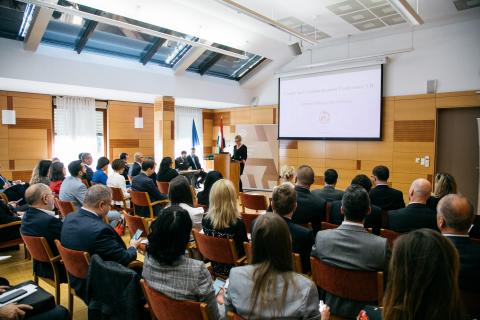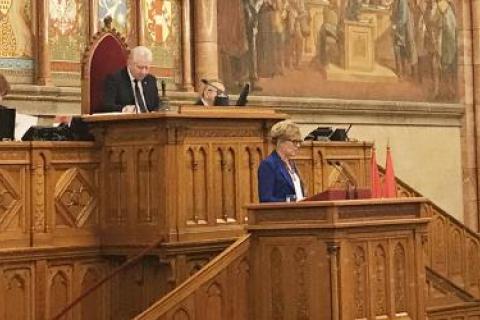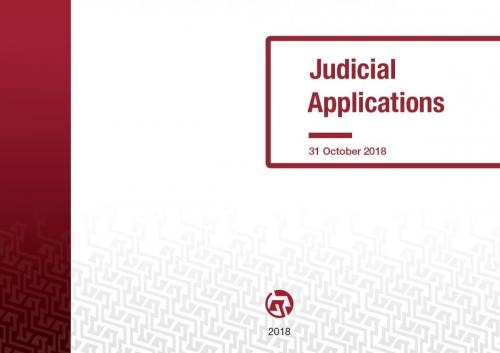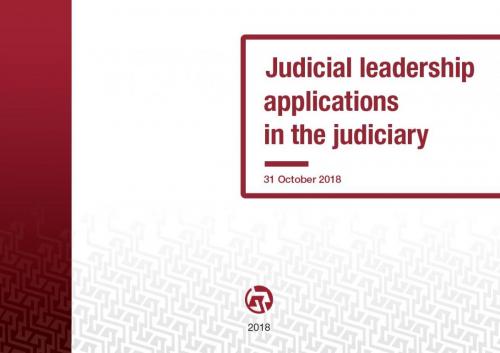Detailed search
The President of the National Office for the Judiciary acted in accordance with the law in the assessement of applications for court leader posistions in 2018.
Numerous positive feedback were received on the International Conference on Courts and Communication on 10-11 October. The event organized annually by the National Office for the Judiciary, for the seventh time this year attracted around 80 guests from 19 countries.
On 29 April 2013 a delegation of the European Network of Councils for the Judiciary (ENCJ) visited Hungary accepting the invitation of the National Judicial Council. Paul Gilligan, president of the ENCJ, Horatius Dumbrava, member of the ENCJ Executive Board and Monique van der Goes, director of the ENCJ Office were the members of the delegation.
Harmincöt bírósági vezetői pályázatot bírált el október 31-ig az Országos Bírósági Hivatal (OBH) elnöke, s ez idő alatt 251 bírói álláshelyre kiírt pályázatról is érdemi döntés született – derült ki abból a két tájékoztatóból, amelyet most a 2017-es jelentésekkel együtt angolul is megjelentetett az OBH.
On 7 April 2020, János Áder, president of the republic has appointed Katalin Csillám and Mónika Erőss as vice-presidents of the National Office for the Judiciary (NOJ).
Six years after the introduction of the new court administration model in 2011, dr. Csaba Virág has come out with a comprehensive analysis on the results of the new system and its performance.
The Council of Europe’s Group of States Against Corruption (GRECO) would radically limit the immunity of the Hungarian judges – says the report on Hungary published today.
In the last 7 years we have had the opportunity to make such developments in infrastructure that have been missing since the beginning of the 20th century, and further developments will follow in the future, "said the President of the National Office for the Judiciary (NOJ) in her sixth annual parliamentary report of the year 2017.
In the ten years after the accession of Hungary to the European Union in 2004, judges in Hungary have initiated preliminary ruling procedures (hereinafter: preliminary ruling procedure2) in the highest number as compared to those initiated by the Member States newly accessed to the EU.








